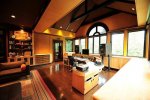When you are making a decision on what speaker monitors to purchase for your home studio, where do you go to find out about them, and eventually purchase them? Please be as explicit as possible in your answer.
1. What websites do you go to learn about monitors?
2. Do you go to a store and listen to them before making your decision?
3. Is price really an issue? (This question applies to beginners and pros)
4. Any other info you want to share?
Thanks, just trying to know what people are actually thinking, since the monitors are the most important piece of the chain when producing and mixing music (Beginners and Pros, please reply).
Cheers,
Starr
1. What websites do you go to learn about monitors?
You don't need to learn so much about monitors technically, what you need is most often listed in the specifications on most sites. You want them to be able to handle high SPLs so that they don't distort when the mix distorts and vice versa. You want them to be able to take high voltages from your console or audio interface, in other words a weak amp against a high impedance is an issue, because you'll not have a smooth linear frequency response across the velocity range, you will not be able to get "into" the mix much enough because they are not sensitive enough. You also want them to have a flat response and that they have the right dimensions. They also need to have a protection that kicks in when you push them beyond their limit.
2. Do you go to a store and listen to them before making your decision?
No, because it takes many mixes before you know how good of a match they are relative to your ears, your amplification and the room, so for practical reasons I find it is best to set the bar high by just choosing a brand, dimension and price level for a certain standard and go from there. Barefoot for pro at high cost, ATC for very pro at very high cost. Then when you have learned exactly why they are not optimal for you, this can take months if not years, then you can compliment based on what you already know about monitors at this quality.
3. Is price really an issue? (This question applies to beginners and pros)
Generally the higher the price, the better, but can vary a little at the prosumer price level.
4. Any other info you want to share?
It is ideal if you have a set of very large mains and three near field sets of various sizes that can all play the mix at the same time. Much of the performance of speakers comes from getting multiple perspectives of the sound at the same time. Then when you configure the room acoustics, fit the room against the monitors, not the monitors against the room. Large speakers in a small room can work, but it should not be too small. It is also important that they can handle the output capacity of the audio interface/console, so that you get maximum use of the amount of signal the audio interface can deliver. The voltage RMS curvature is cumulative, so the more sensitive they are the better the dynamics of your mix is going to end up. So think not only in terms of frequency response but also in terms of what kind of dynamics you'll be able to achieve with them.
Here is an example of the monitors that Vince Gill is using in his studio - ATC SCM150ASL Pro. He would gain even more from a few more sets, but these particular ATC monitors have pretty ideal dimension and is an excellent all around choice for most engineers out there. But be prepared that these are far from cheap... But if you are going towards pro level, this is a good example of the kind of speakers to look for.



 . That big because you want proper bass representation. IMO, no better monitor around anywhere near that price. Monitors of 5 times, or more, as expensive don't even sound as good.
. That big because you want proper bass representation. IMO, no better monitor around anywhere near that price. Monitors of 5 times, or more, as expensive don't even sound as good.